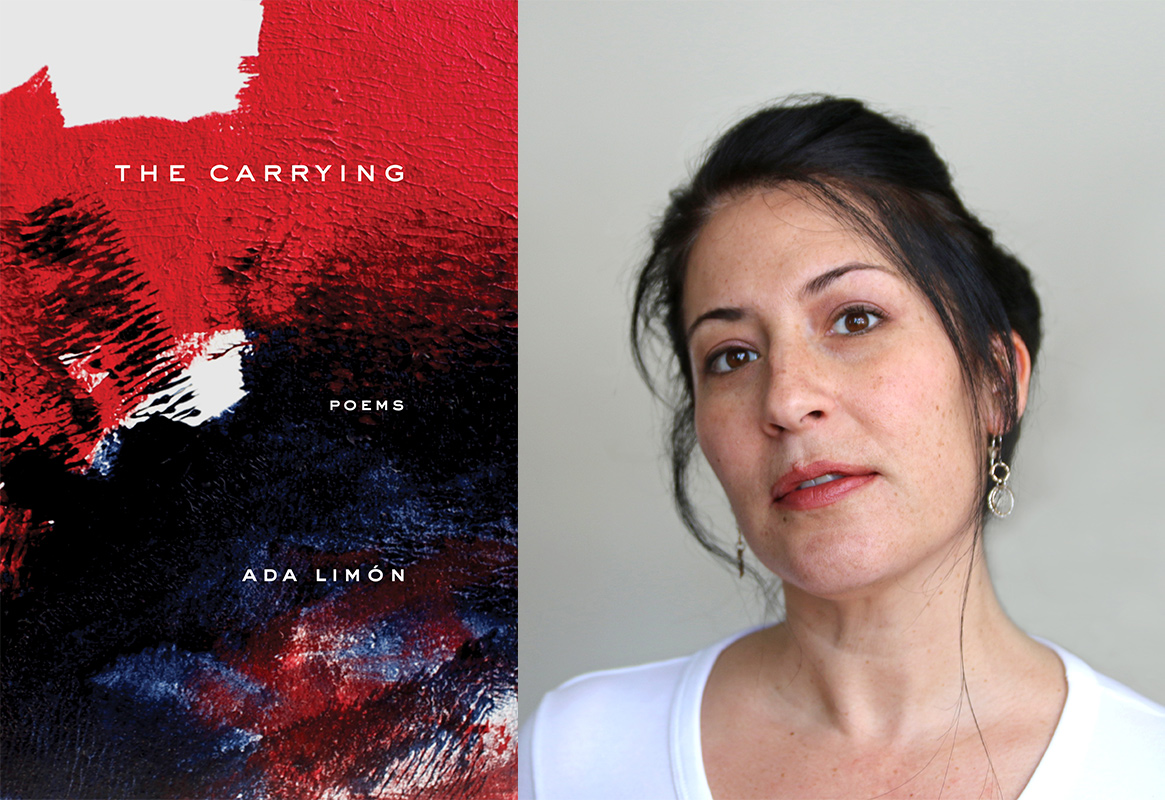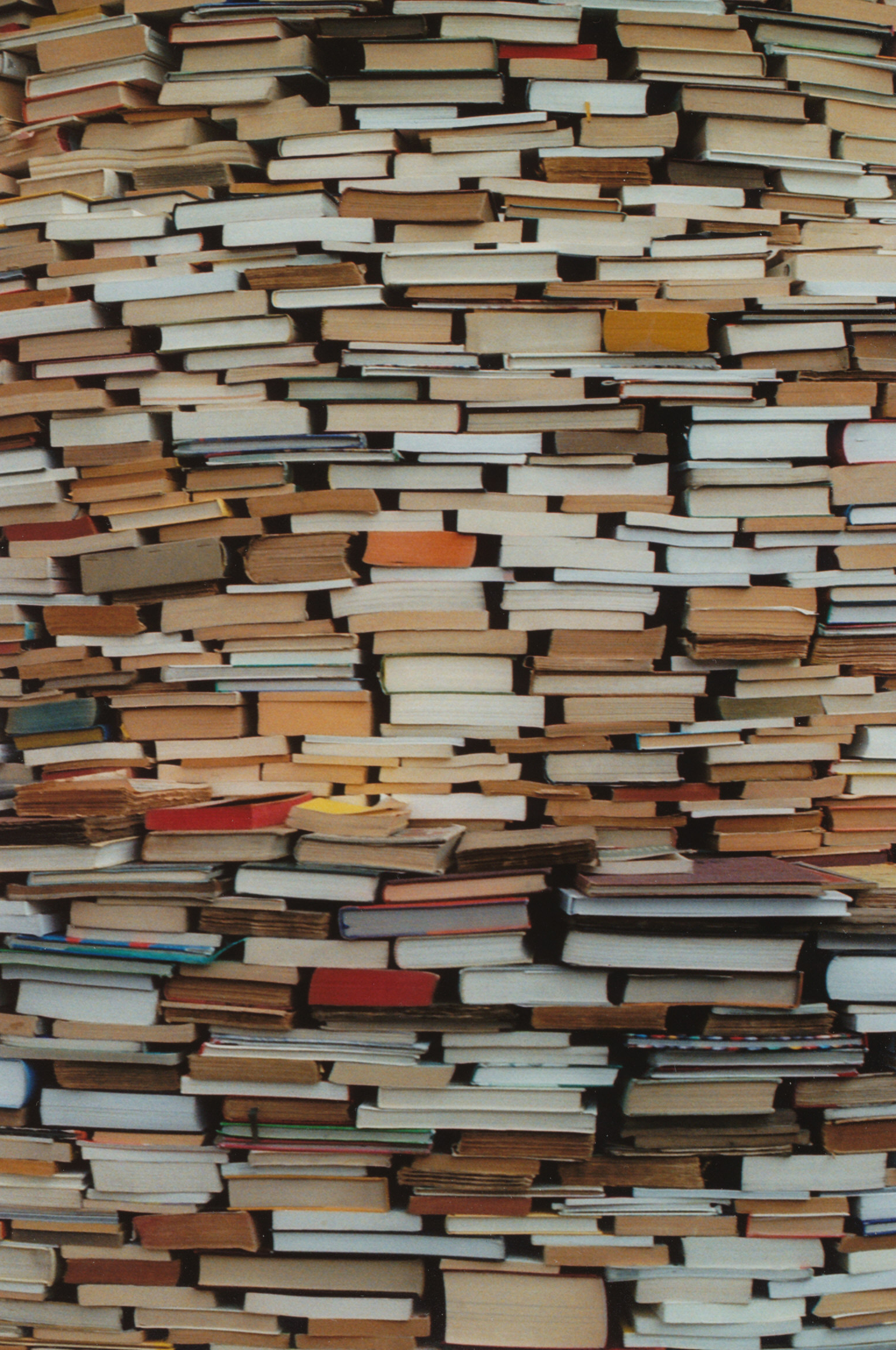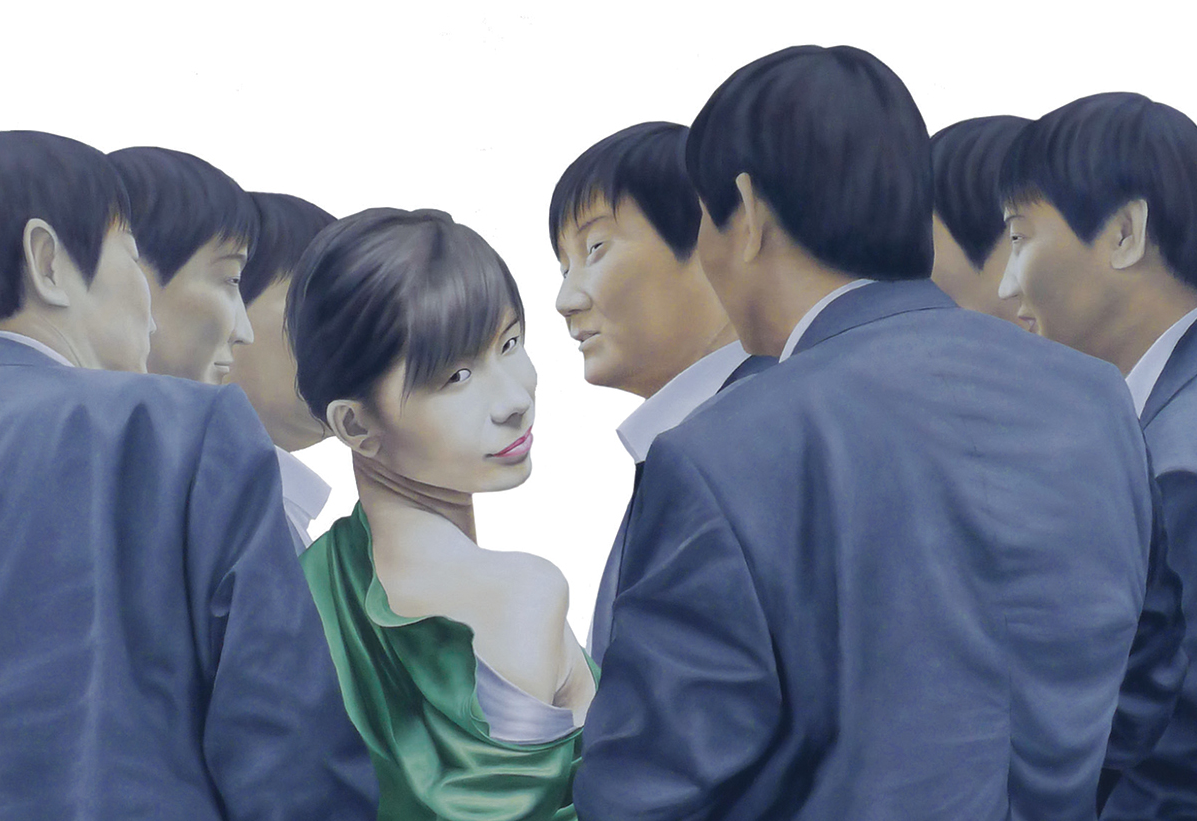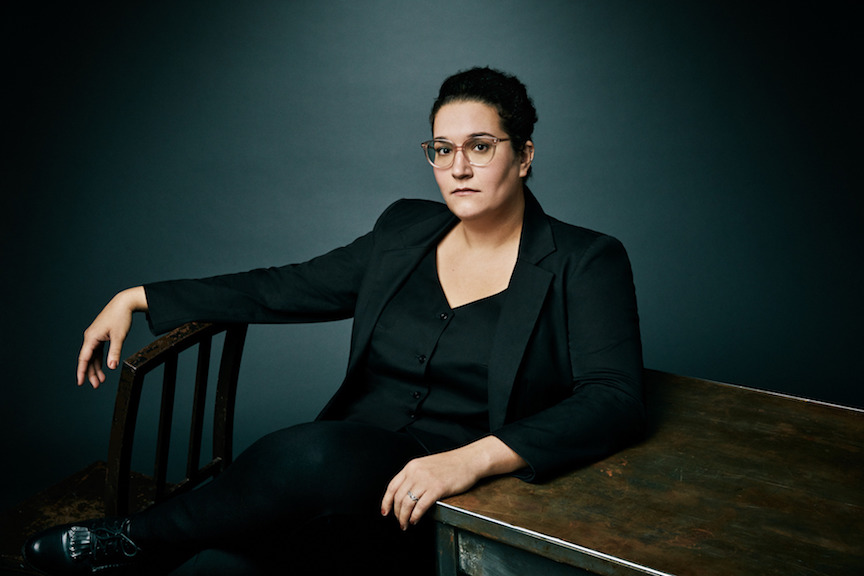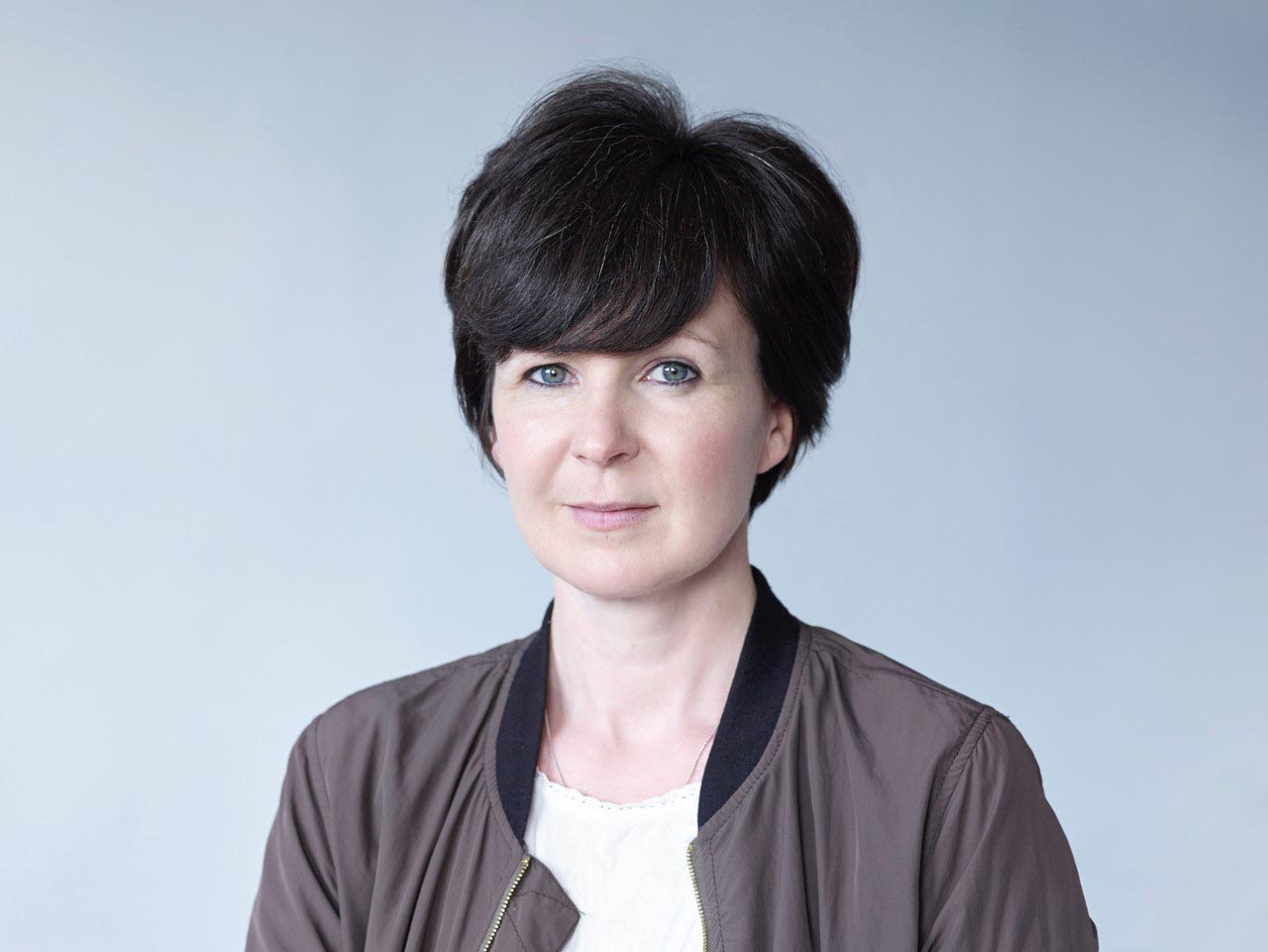The Word Process is an interview series focusing on the writing process and aimed at illuminating the many ways that writers approach the same essential task. In this interview, the poet Ada Limón discusses how tenacity breeds a self-reliance that makes you a better writer, silencing outside influences to prevent mimicry, and what she calls “the gathering time.”
You can read other Word Process interviews here.
What does your writing desk look like? What objects, photographs, texts or talismans do you keep there?
I write in two places when I’m home. One is my office which has a lime green formica table. On top of the desk is a green dish that says WRITING and in the dish is a metal acorn, stones from Provincetown, and three old fashioned stamps of words: Horse, fish, bird. I also have a picture of my husband, my friends Jen, Heather, and Trish and one of my mother and I. Oh and there’s a cat bed for the cat Olive up on the desk as well. The other place I write is my large screened in porch. It’s surrounded by hanging plants and a view of my backyard and garden. Apparently everywhere I write is always green.
Describe a typical day in your writing life.
I don’t know if anything is typical in a day of a writer. Everything is different. I’m often on the road and the day is spent in airplanes and hotel rooms and different universities. But when I’m home, I suppose an ideal day is spent getting up with the dog around 7:30. I walk her generally in the mornings and sometimes my husband joins us. Then, I do yoga or circuit training for 45 minutes or an hour. That’s followed by a short daily meditation. Then, I shower and start to write. If I’m working on a poem I’ll get an initial draft down and then put it away to edit much later (sometimes more than a month later). If it comes out fully formed I’ll send it to my kind and gen-erous readers. Lunch is at home. My husband also works from home so generally we break and eat together. Then, I catch up on emails, scheduling, various service projects I’m working on as well as class work for the low-res MFA I teach in. In the afternoon I try to make time for a nap because the dog insists. I take the dog for another evening walk and make dinner here or we go out downtown Lexington with friends or just with each other. Those are good days. The perfect days. Peaceful and creating and full of self care.
When it comes to the craft of writing, what do you think is the most important quality or skill for a writer to possess in order to excel, and why?
One of the most important skills to foster is a type of tenacity. You just have to keep at it. There’s so much that will prevent you or try to prevent you. There’s so many distractions and self doubt and rejection. So, the biggest skill you can develop is to simply keep going. If you can keep going through draft after draft through the ugly crying and the years of returned poems, you’ll learn a self-reliance that will make you a better writer. I think the other thing is that you have to learn how to care about yourself. For yourself. That’s part of tenacity too. If you wreck your stomach with coffee and discover it causes panic attacks, stop drinking coffee. Your writing wants you to feel clear headed. Your writing wants you to widen your gaze and see the world fully. Your writing wants you to be tender and vulnerable to the world. That’s hard to do if self care isn’t involved.
What book, poem, story, essay or quotation inspires you as a writer? What are your literary touchstones, the things that come to mind as you sit down to write a first draft?
I actually can’t read a lot when I’m really working on writing. I can be such a mimic that I need to silence the voices before I start. I often have a few quotes circling around me:
From “Faint Music” by Robert Hass:
I had the idea that the world’s so full of pain
it must sometimes make a kind of singing.
And that the sequence helps, as much as order helps.
First an ego, and then pain, and then the singing.
From “Käthe Kollwitz” by Muriel Rukeyser:
What would happen if one woman told the truth about her life? The world would split open.
From “The Book of Light” by Lucille Clifton
Come celebrate with me that every day something has tried to kill me and has failed.
From Carl Jung:
As far as we can discern, the sole purpose of human existence is to kindle a light in the mere darkness of being.
From “Braiding Sweetgrass” by Robin Wall Kimmerer
“All flourishing is mutual.”
What do you do when you feel stuck in your writing?
This may shock you, but I don’t write. If I am stuck, I take time to breathe and read and walk and visit and work and let the writing have a little break. I call it the gathering time. I just receive the world instead of trying to put words to it. If I allow myself that, then the words come back even-tually.
What’s the best advice about craft or process that you’ve ever received?
The best advice I ever received was from my stepdad who told me to always try to be my most authentic self on the page, to not try to mask or perform, but to listen to what my realest voice is saying.
Ada Limón is the author of five books of poetry, including Bright Dead Things, which was named a finalist for the 2015 National Book Award in Poetry, a finalist for the Kingsley Tufts Poetry Award, a finalist for the 2016 National Book Critics Circle Award, and one of the Top Ten Poetry Books of the Year by The New York Times. Her other books include Lucky Wreck, This Big Fake World, and Sharks in the Rivers. She serves on the faculty of Queens University of Charlotte Low Residency M.F.A program, and the 24PearlStreet online program for the Provincetown Fine Arts Work Center. She also works as a freelance writer in Lexington, Kentucky. Her new collection, The Carrying, was released by Milkweed Editions in August of 2018.
